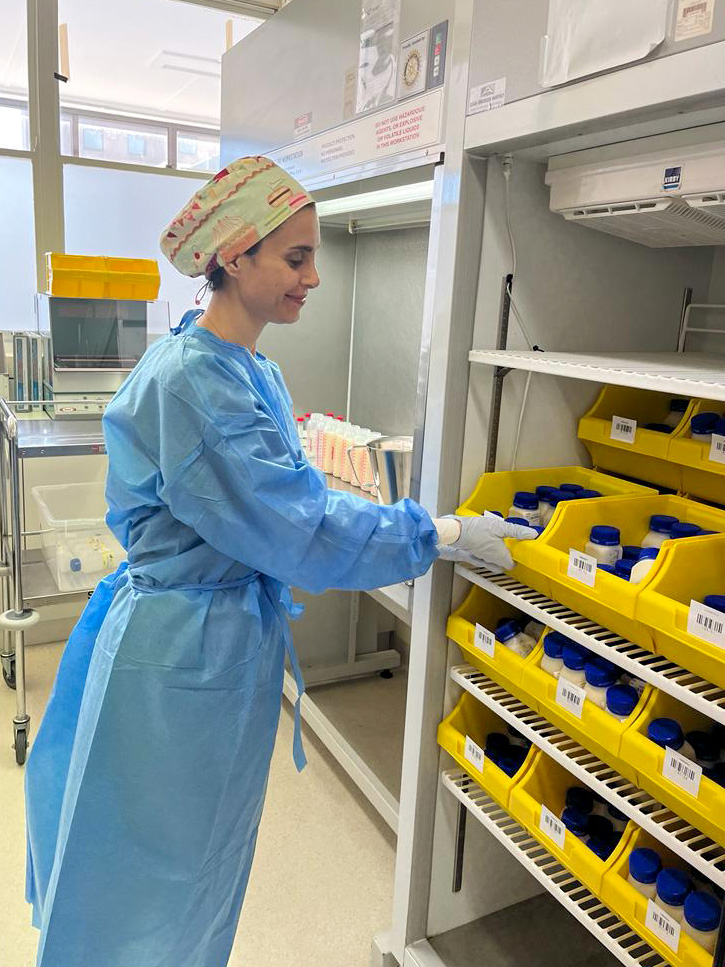Gisele hits jackpot with PREM bank role
 Gisele Yikilmaz, Medical Scientist, at work in the CAHS PREM Bank, located at King Edward Memorial Hospital
Gisele Yikilmaz, Medical Scientist, at work in the CAHS PREM Bank, located at King Edward Memorial Hospital
Gisele Yikilmaz couldn’t believe her luck when she spotted a job advertisement for a medical scientist to work in the PREM Bank at King Edward Memorial Hospital (KEMH).
‘I was ecstatic,’ she recalls.
‘It encompassed everything I had been looking for – science, healthcare and working with babies – it fulfilled all my desires.’
Gisele got the job and 7 years into the role still loves the work which, through the provision of donated breast milk, supports the growth, development and long-term health of vulnerable infants at KEMH and Perth Children’s Hospital.
‘My main responsibility is to handle the generously donated milk before it’s given to the infants,’ she explains.
‘The donations serve as the closest alternative to the milk of the infants’ own mothers.
‘I process and store the milk in accordance with food safety standards, as well as oversee the day-to-day operations of the milk bank.’
Gisele also considers herself privileged to work alongside ‘the dedicated team at Neonatology’, whom she describes as a source of inspiration and motivation.
‘Together we strive to provide the best possible care for these precious infants, knowing that the impact of our collective efforts extends far beyond their initial stay in the hospital,’ she says.
‘Witnessing the growth and progress of these infants, who overcome incredible odds, is a testament to the importance of our work.’
Gisele worked at Telethon Kids Institute prior to PREM Bank and has a double degree in science, double major in biomedical science and molecular biology, and a single major in chemistry minoring in forensic biology from Murdoch University.
‘What I love about science is that it provides evidence-based explanations and solutions to problems,’ she says.
‘This helps us understand the world and make informed decisions, while giving us valuable insights about ourselves and the people around us.
‘Most importantly, science contributes to our advancement – both as individuals and as a society.’

